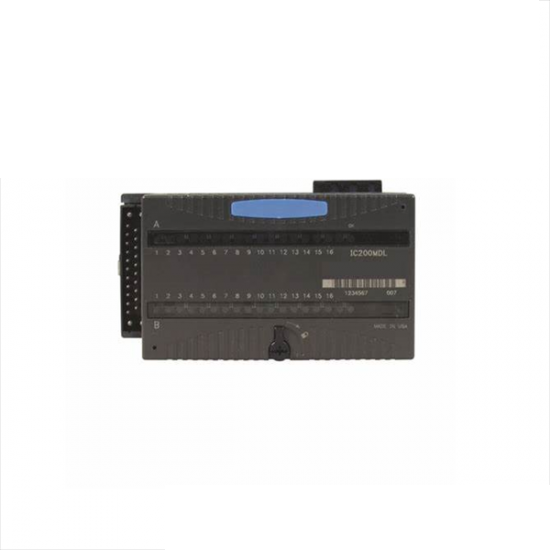The GE Fanuc IC200MDL650F Input Module is designed for seamless data acquisition in industrial environments. It ensures high accuracy and reliability in monitoring and controlling processes.
The GE Fanuc IC200MDL650F Input Module is designed for seamless data acquisition in industrial environments. It ensures high accuracy and reliability in monitoring and controlling processes.
 WhatsApp
WhatsApp
Product Type:Discrete Input Module
Manufacturer:GE FANUC
Model Number:IC200MDL650F
Operating Voltage Range:24V DC ± 5%
Number of Channels:16
Input Types:Digital
Communication Protocol:Modbus
Environmental Rating:IP20
Mounting Type:Panel
Operating Temperature Range:-10°C to +55°C
Storage Temperature Range:-20°C to +70°C
Relative Humidity:5% to 95% non-condensing
The GE FANUC IC200MDL650F is a versatile input module engineered to meet the stringent demands of modern industrial automation environments. Its compact design and robust build quality make it an ideal choice for both new installations and system upgrades.
Featuring 16 digital inputs capable of detecting various physical states, this module is equipped to handle diverse industrial signals with precision. The modular design allows for easy expansion and configuration, ensuring flexibility to adapt to evolving control needs.
Built-in Profinet connectivity enables seamless integration with GE FANUC’s broader automation ecosystem, facilitating real-time data exchange and enhanced process monitoring. This feature is particularly advantageous in environments requiring tight integration with other control components.
The IC200MDL650F operates efficiently within a wide temperature range, ensuring reliable performance under extreme conditions typically encountered in industrial settings. Its low power consumption contributes to energy savings and sustainability, making it an eco-friendly choice for green manufacturing practices.
Designed with user-friendliness in mind, the module offers intuitive setup and maintenance, reducing downtime and minimizing the need for specialized technical support. Its compatibility with a variety of industrial standards ensures broad interoperability, enhancing the ease of integration with existing infrastructure.
